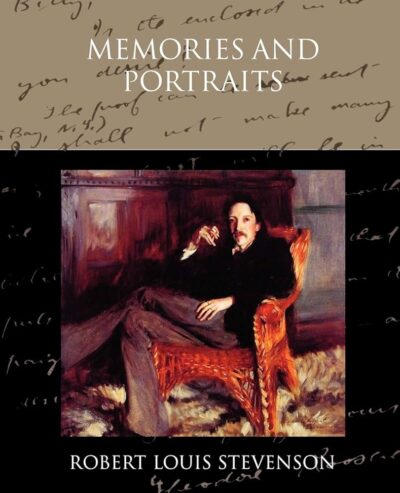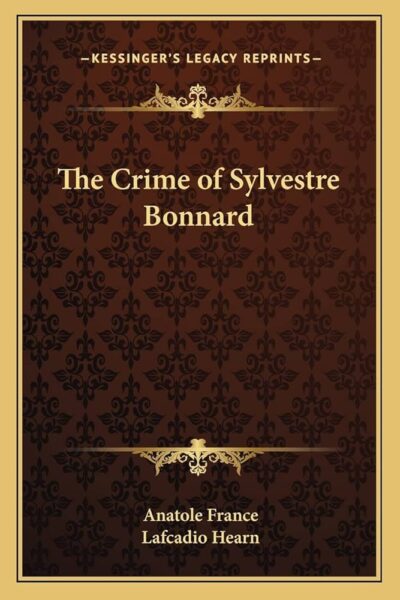LovelyMay
Stories
93
Chapters
1,516
Words
6.7 M
Comments
0
Reading
23 d, 5 h
-
 Chapter II continues with an exploration into how fiction distills life rather than replicating it. The author insists that while a novel might appear complex on the surface, its strength often lies in its underlying simplicity. Great novels, like great paintings, use clear strokes that sharpen a specific human truth rather than crowding the canvas with every detail of reality. Through focused intention, fiction can illuminate the subtleties of emotion or the weight of circumstance with greater clarity…
Chapter II continues with an exploration into how fiction distills life rather than replicating it. The author insists that while a novel might appear complex on the surface, its strength often lies in its underlying simplicity. Great novels, like great paintings, use clear strokes that sharpen a specific human truth rather than crowding the canvas with every detail of reality. Through focused intention, fiction can illuminate the subtleties of emotion or the weight of circumstance with greater clarity…-
77.9 K • Ongoing
-
-
 The Fool Errant appears not as a villain nor a hero but as a tender emblem of youthful ignorance dressed in confidence. He gazes down life’s long road, unaware that willpower alone cannot carry one across its winding breadth. His thoughts flutter like petals in spring wind—full of promise, yet scattered by the lightest gust of truth. In his naive certainty, he believes himself poised for greatness, not because he has prepared, but because he yearns. This belief, fragile yet fierce, mirrors the reckless…
The Fool Errant appears not as a villain nor a hero but as a tender emblem of youthful ignorance dressed in confidence. He gazes down life’s long road, unaware that willpower alone cannot carry one across its winding breadth. His thoughts flutter like petals in spring wind—full of promise, yet scattered by the lightest gust of truth. In his naive certainty, he believes himself poised for greatness, not because he has prepared, but because he yearns. This belief, fragile yet fierce, mirrors the reckless…-
12.6 K • Ongoing
-
-
 The Boston Athenaeum quietly draws the soul inward from the noise of modern life, offering not simply a retreat but a return to something deeply human. The narrow spiral staircase, while physically small, feels symbolic—each step a departure from urgency and a descent into calm. High above the casual chatter and distant footsteps below, there exists a gallery where silence hums with potential, where the clutter of books on the floor or just out of arm’s reach feels intentional, as if waiting for…
The Boston Athenaeum quietly draws the soul inward from the noise of modern life, offering not simply a retreat but a return to something deeply human. The narrow spiral staircase, while physically small, feels symbolic—each step a departure from urgency and a descent into calm. High above the casual chatter and distant footsteps below, there exists a gallery where silence hums with potential, where the clutter of books on the floor or just out of arm’s reach feels intentional, as if waiting for…-
12.6 K • Ongoing
-
-
 The Pleiades appear early in the night sky, clustered like small glowing eyes that peer gently through the darkness. There is a quiet intimacy in the way they emerge—not as distant, unreachable stars, but as close companions of the imagination. To a child lying awake, the stars become a playground of myths and dreams, delicate enough to be mistaken for toys left behind by angels or drifting sparks from some forgotten celestial forge. Their faint light doesn't blind but comforts, as if reminding us that…
The Pleiades appear early in the night sky, clustered like small glowing eyes that peer gently through the darkness. There is a quiet intimacy in the way they emerge—not as distant, unreachable stars, but as close companions of the imagination. To a child lying awake, the stars become a playground of myths and dreams, delicate enough to be mistaken for toys left behind by angels or drifting sparks from some forgotten celestial forge. Their faint light doesn't blind but comforts, as if reminding us that…-
12.6 K • Ongoing
-
-
 Part I – The Log begins with the overwhelming revelation that Madame Trepof, so poised and refined, had once been the wife of an obscure Sicilian peddler. This discovery shocks the narrator, not because such transformations are impossible, but because the motive behind her action feels too pure to be believable. That this woman, having overheard him speak with deep longing about an ancient manuscript, should later gift him the very treasure he had dreamed of, stretches his sense of reason. He had prided…
Part I – The Log begins with the overwhelming revelation that Madame Trepof, so poised and refined, had once been the wife of an obscure Sicilian peddler. This discovery shocks the narrator, not because such transformations are impossible, but because the motive behind her action feels too pure to be believable. That this woman, having overheard him speak with deep longing about an ancient manuscript, should later gift him the very treasure he had dreamed of, stretches his sense of reason. He had prided…-
26.6 K • Ongoing
-
-
 Chapter I begins with Sylvestre Bonnard stepping into the calm embrace of the countryside, its evening air filled with the scent of grass and baked earth still warm from the day. His journey, though outwardly simple, carries the weight of many internal reflections. As the train pulls away, he walks alone with a bag packed by his faithful housekeeper, filled more with routine than need. The path he treads is familiar, yet newly painted with nostalgia. Memories bloom with each step—his old schoolmaster’s…
Chapter I begins with Sylvestre Bonnard stepping into the calm embrace of the countryside, its evening air filled with the scent of grass and baked earth still warm from the day. His journey, though outwardly simple, carries the weight of many internal reflections. As the train pulls away, he walks alone with a bag packed by his faithful housekeeper, filled more with routine than need. The path he treads is familiar, yet newly painted with nostalgia. Memories bloom with each step—his old schoolmaster’s…-
26.6 K • Ongoing
-
-
 Chapter II brings a quiet reflection, as the narrator muses on the brevity of life and the urgency to finish his work before time slips away. This sense of passing time isn't heavy with dread, but touched with realism and a gentle longing to preserve what matters. There is something deeply personal in his awareness—not of death as an end, but as a motivator. Madame de Gabry appears once more, adding her particular blend of grace and mischief to the scene. Her tales about ghostly legends—especially the…
Chapter II brings a quiet reflection, as the narrator muses on the brevity of life and the urgency to finish his work before time slips away. This sense of passing time isn't heavy with dread, but touched with realism and a gentle longing to preserve what matters. There is something deeply personal in his awareness—not of death as an end, but as a motivator. Madame de Gabry appears once more, adding her particular blend of grace and mischief to the scene. Her tales about ghostly legends—especially the…-
26.6 K • Ongoing
-
-
 Chapter III begins with a curious tone, as the surreal remnants of a dream linger in the mind of a man who otherwise lives in the realm of logic and literature. What appears to be a whimsical figment—a fairy tale carried into wakefulness—becomes the opening thread of something unexpectedly meaningful. Sylvestre Bonnard, though a man of letters and rational thought, finds joy in recounting this strange dream to Madame de Gabry. Her lighthearted response doesn’t dismiss it, but embraces the idea that…
Chapter III begins with a curious tone, as the surreal remnants of a dream linger in the mind of a man who otherwise lives in the realm of logic and literature. What appears to be a whimsical figment—a fairy tale carried into wakefulness—becomes the opening thread of something unexpectedly meaningful. Sylvestre Bonnard, though a man of letters and rational thought, finds joy in recounting this strange dream to Madame de Gabry. Her lighthearted response doesn’t dismiss it, but embraces the idea that…-
26.6 K • Ongoing
-
-
 Chapter IV marked a turning point not just in a diary, but in a life long defined by quiet rituals and solitary pursuits. The once silent haven of manuscripts had grown vibrant, filled with the laughter and presence of two young hearts discovering love. Jeanne and Gelis, with their blooming affection, brought warmth into corners of the house where only the rustling of old paper once lived. The shift was not sudden but unmistakable, like the slow stretch of sunlight returning after a long winter. Each…
Chapter IV marked a turning point not just in a diary, but in a life long defined by quiet rituals and solitary pursuits. The once silent haven of manuscripts had grown vibrant, filled with the laughter and presence of two young hearts discovering love. Jeanne and Gelis, with their blooming affection, brought warmth into corners of the house where only the rustling of old paper once lived. The shift was not sudden but unmistakable, like the slow stretch of sunlight returning after a long winter. Each…-
26.6 K • Ongoing
-
-
 The Last Page opens with a quiet humility as Monsieur Sylvestre Bonnard contemplates the fragile harmony of the world outside his window and the manuscript nearing its end on his desk. Insects buzzing past blooming petals become more than fleeting visitors; they represent an unseen dialogue between life forms, each fulfilling roles nature has delicately balanced. He marvels at how petals curve not just for beauty but for purpose, enticing bees and butterflies in a courtship dance that ensures survival. His…
The Last Page opens with a quiet humility as Monsieur Sylvestre Bonnard contemplates the fragile harmony of the world outside his window and the manuscript nearing its end on his desk. Insects buzzing past blooming petals become more than fleeting visitors; they represent an unseen dialogue between life forms, each fulfilling roles nature has delicately balanced. He marvels at how petals curve not just for beauty but for purpose, enticing bees and butterflies in a courtship dance that ensures survival. His…-
26.6 K • Ongoing
-
- Previous 1 … 30 31 32 … 152 Next
